Mark Anthony Neal's Blog, page 664
December 16, 2015
Poet Cornelius Eady reads "Emmett Till's Glass-Top Casket"
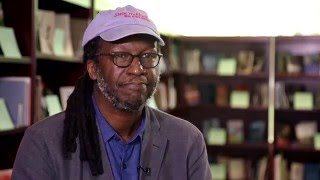 'Cornelius Eady gives a reading of his poem "Emmett Till's Glass-Top Casket" at Poets House in New York City'-- +PBS NewsHour
'Cornelius Eady gives a reading of his poem "Emmett Till's Glass-Top Casket" at Poets House in New York City'-- +PBS NewsHour
Published on December 16, 2015 10:43
December 15, 2015
When the “N*gger” is a “F*ggot”: on Rajon Rondo and Intersectionality by Mark Anthony Neal
 When the “N*gger” is a “F*ggot”: on Rajon Rondo and Intersectionality
by Mark Anthony Neal | @NewBlackMan | NewBlackMan (in Exile)
When the “N*gger” is a “F*ggot”: on Rajon Rondo and Intersectionality
by Mark Anthony Neal | @NewBlackMan | NewBlackMan (in Exile)God forbid if Kristaps Porzingis was lost in translation one day and called his teammate, and fellow rookie, Jerian Grant a “n*gger.” Suspect that the calls for swift justice would come swiftly, as well as nominal examples of what I’ll just call the “Duke University Defense”: he’s not from this country, so he didn’t know that “n*gger” was a bad word.
Of course that is not the case, and in this era of post...Donald Sterling, the NBA would have been hell bent on keeping its product, brand, laborers, intact. Instead the league took a week to respond when one of its players, referred to one of its referees as a “f*ggot,” in response to a call that said player disagreed with.
Black on Black crime might be a myth, but that was a Black man that called another Black man a “f*ggot” and I’m not hearing much about Black Lives that Matter, All Lives that Matter or All the Black Lives that Matter. With all of this talk about Intersectionality in the lives of Black Lives that Matter, one might wonder if homophobic comments or violence directed at a Black body carries the same weight as racist comments or violence directed at a Black body. Who is exactly the arbiter here? Is the theoretical intervention that Intersectionality emboldens not applicable in this case?
Indeed even the league, despite the delay in justice, chose to suspend Rondo. This is in contrast to four years ago when Kobe Bryant called another Black referee, Bennie Adams, a “fuckin' f*ggot” and was simply fined. As some are celebrating Bryant now, as he takes those last layups, few seem to remember Bryant’s homophobic quip (or that rape charge).
San Antonio Spurs’ coach Gregg Popovich’s admission that “it happens all the time” is just confirmation of how casual homophobic language is among American men. Many men have memories of just how casually such language was used in the context of some of the childhood games we played in our efforts to try on what we believed to be a normative masculinity--and it was easy to be so casual because we all assumed we all were so-called “straight” boys.
While I fundamentally reject the idea that Black men are any more homophobic than their White male peers, in this particularly moment, when so many have a heightened sense of the violence directed at Black bodies, is it too much to expect that some of us might be more careful about reproducing the very language of violence and hate, that others are mounting national campaigns to challenge?
Or maybe Rajon Rondo is just be an “asshole"?
Published on December 15, 2015 18:19
Privatization and Policing "Black Colonies": the Death of Alonzo Smith
 'Pan-African Community Action (PACA) convened a rally in Washington, D.C. Saturday to call for answers in the death of Alonzo Smith while in private police custody.' -- +TheRealNews
'Pan-African Community Action (PACA) convened a rally in Washington, D.C. Saturday to call for answers in the death of Alonzo Smith while in private police custody.' -- +TheRealNews
Published on December 15, 2015 17:06
What Stagnant Diversity Means for America's Newsrooms: Conversation with Richard Prince
 'As racial concerns continue to rise to the surface across America, is the media doing enough to tell the stories of people of color? +PBS NewsHour Special correspondent Charlayne Hunter-Gault speaks to Richard Prince of the
Maynard Institute
about the industry’s struggle with diversity.'
'As racial concerns continue to rise to the surface across America, is the media doing enough to tell the stories of people of color? +PBS NewsHour Special correspondent Charlayne Hunter-Gault speaks to Richard Prince of the
Maynard Institute
about the industry’s struggle with diversity.'
Published on December 15, 2015 16:50
Producer Hank Shocklee: "We All Had A Role In Creating Music For Public Enemy"
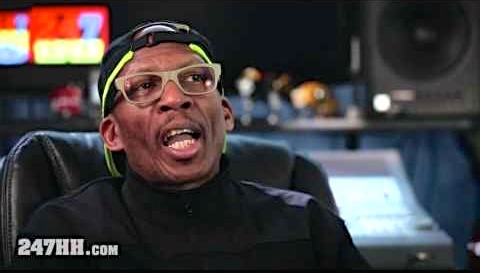 'Official 247HH exclusive interview with Long Island, New York based Hip Hop DJ and Producer, Hank Shocklee of The Bomb Squad, where you’ll hear about the important roles that each member of Public Enemy played when creating music." -- +PublicEnemyVEVO
'Official 247HH exclusive interview with Long Island, New York based Hip Hop DJ and Producer, Hank Shocklee of The Bomb Squad, where you’ll hear about the important roles that each member of Public Enemy played when creating music." -- +PublicEnemyVEVO
Published on December 15, 2015 08:52
'The Third Space' with Marc Bamuthi Joseph [Episode 4)
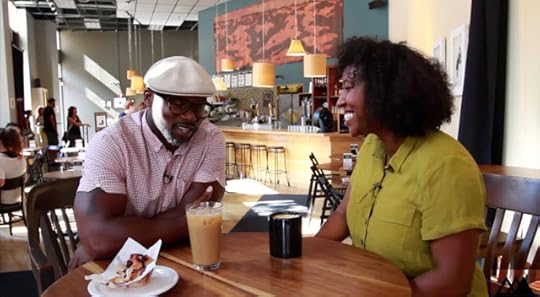 '
The Third Space
host Faiza Farah spoke to Marc Bamuthi Joseph about the function of art and the artist. The revolutionary act of experiencing joy in this moment of chaos and about his upcoming play with Bill T. Jones. Joseph is a writer, educator, curator, playwright, dancer and much more. He is currently serving as the Director of Programs and Pedagogy at Yerba Buena Center for the Arts in San Francisco.' -- +Blavity
'
The Third Space
host Faiza Farah spoke to Marc Bamuthi Joseph about the function of art and the artist. The revolutionary act of experiencing joy in this moment of chaos and about his upcoming play with Bill T. Jones. Joseph is a writer, educator, curator, playwright, dancer and much more. He is currently serving as the Director of Programs and Pedagogy at Yerba Buena Center for the Arts in San Francisco.' -- +Blavity
Published on December 15, 2015 05:34
Black Girls Code Founder Kimberly Bryant Talks the Impact of Biases on Collaboration
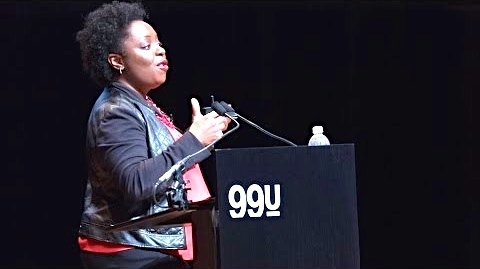 'We all have biases and blind spots, unconsciously affecting the way we collaborate with others. In this +99U talk, Black Girls Code founder Kimberly Bryant shares how pervasive these biases are in our society and how that hampers our careers and our culture.'
'We all have biases and blind spots, unconsciously affecting the way we collaborate with others. In this +99U talk, Black Girls Code founder Kimberly Bryant shares how pervasive these biases are in our society and how that hampers our careers and our culture.'
Published on December 15, 2015 04:29
December 13, 2015
Chance the Rapper Gets Sanctified with "Sunday Candy" on SNL
Published on December 13, 2015 06:04
December 12, 2015
The World Needs to Remember Ella Baker
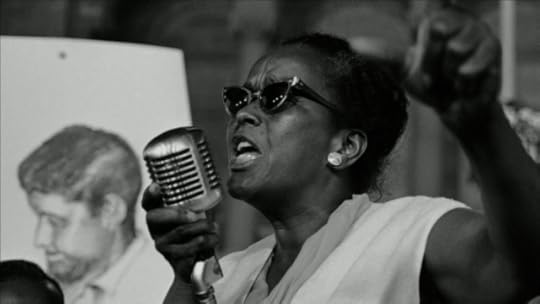 The World Needs to Remember Ella Bakerby Lawrence Ware + LaVonya Bennett | NewBlackMan (in Exile)
The World Needs to Remember Ella Bakerby Lawrence Ware + LaVonya Bennett | NewBlackMan (in Exile)December 13 marks both her birth and transition date. She was born December 13, 1903, and she went to be with the ancestors on December 13, 1986, at the age of 83. She was a tireless advocate for human rights and worked alongside well-known figures like W.E.B. Du Bois and A. Philip Randolph while serving as a mentor to the likes of Diane Nash and Rosa Parks. She worked with the National Association for the Advancement of Colored People, the Southern Christian Leadership Conference, and the Student Nonviolent Coordinating Committee.
She was revered in her time, but few have heard of her today. This is partly because she worked mostly behind the scenes as an organizer. She said of herself:
“You didn't see me on television; you didn't see news stories about me. The kind of role that I tried to play was to pick up pieces or put together pieces out of which I hoped organization might come. My theory is, strong people don't need strong leaders.”
The often overlooked and underappreciated work of Ella Baker speaks to the silencing behaviors experienced by women of color. The Black Panther Party and the Student Nonviolent Coordinating Committee were mostly comprised of or developed by black women, but history remembers the men who situated themselves as figureheads.
This impulse to silence black women continues today—especially in light of the recent Hotlzclaw trial. Black women were targeted by this Oklahoma City police officer because he knew that their history of sex work and membership in a marginalized community would keep their stories from being taken seriously by those in authority—and he was right. Sitting in the courtroom listening to the questions asked of the women, it became clear that the victims of the assault were just as much on trial as Holtzclaw. Further, the fact that he was found guilty of only 18 of the counts indicates that the women were, in fact, not believed. Yes, he received a recommended sentence of over 200 years, but the truth remains that the jury still did not believe some of the women.
No, justice was not served—despite Holtzclaw’s self-pitying tears. Therefore, amid the celebrations, we should never lose sight of the fact that his plan partially worked. He knew poor black women would be viewed skeptically—and they were. If we are to empower people silenced by white supremacy, we must be intentional about doing the hard work of organizing.
Baker often said “the movement made Martin, and not Martin the movement.” These were radical statements about Martin Luther King, but Baker understood the importance of grassroots activism. For her, it was important to highlight the fact that true power lies in organizing oppressed people for action. She undermined expectations regarding female performance while being ridiculed for her vocal and direct demeanor. Later, women in the Black Panther Party directly cited Baker as an inspiration and began to immolate her tenacity, passion for serving, and drive to bring intersectionality to the fight for equality.
Commenting on the need to be intersectional in the fight against oppression, Baker said:
“Even if segregation is gone, we will still need to be free; we will still have to see that everyone has a job. Even if we can all vote, but if people are still hungry, we will not be free…”She understood clearly that to fight oppression, one must fight all systems—not just one.
Most movements striving to counter the attacks toward black bodies have focused on the needs of those who are cis-gender. We must push the revolution/fight forward. To fight for black men, black women, and black bodies means to also fight against systems that harm black trans, gay, and bisexual members of our community. Too long there has been a deep conservatism in many black folks surrounding LGBT members of the community. If we are to fight for black liberation, we must fight for all people to be liberated. To this end we must address a concerning development in the wake of the verdict in Oklahoma City.
After the Hotlzclaw trial, those who were outraged voiced a desire for him to be sexually assaulted in prison. Imagine that. Many used the conviction of a man who committed sexual assault as an excuse to make jokes about sexual assault in prison. When people hope that he is raped or referred to his expression of emotion as being a “pussy”-- the message being sent is not only negative for survivors of gender based violence but also fuels homophobia. The underlying assumption is that the ultimate punishment for any man is to have sex with another male. Further, these comments uphold patriarchal systems that encourage men to perform in arbitrary ways to prove masculinity. Holtzclaw must be accountable for his actions, but we must take care to not promulgate homophobia as we celebrate this moment of justice.
We need to remember Ella Baker. Our efforts should always be informed by those who laid the foundation. As we continue to mobilize for equity, we must remember, as Ella showed us, that the equity for which we fight must be inclusive, expansive, and always challenging the status quo.
+++
Lawrence Ware is an Oklahoma State University Division of Institutional Diversity Fellow. He teaches in OSU's philosophy department and is the Diversity Coordinator for its Ethics Center. A frequent contributor to the publication The Democratic Left and contributing editor of the progressive publication RS: The Religious Left, he has also been a commentator on race and politics for the Huffington Post Live, NPR's Talk of the Nation, and PRI’s Flashpoint. Follow him on Twitter: @law_ware
LaVonya Bennett is an Administrator in Residence Life, a division of Student Affairs, and an adjunct instructor at the University of Oklahoma. She serves as a Directorate member with the Coalition for Women's Identities through the American College Personnel Association. She can be reached at: Lavonyabennett@gmail.com
Published on December 12, 2015 19:58
Dionne Warwick at 75: A Playlist
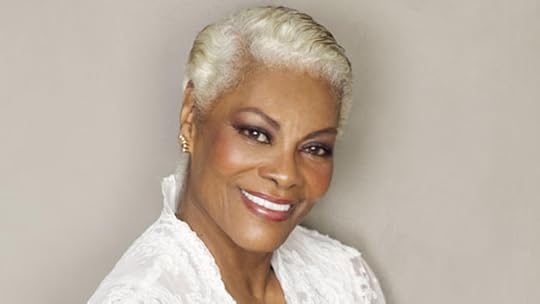 Dionne Warwick at 75: A Playlist
by Mark Anthony Neal | @NewBlackMan | NewBlackMan (in Exile)
Dionne Warwick at 75: A Playlist
by Mark Anthony Neal | @NewBlackMan | NewBlackMan (in Exile)
At her commercial peak in the 1960s, Dionne Warwick had the fortune--depending on your vantage--to share the “Black Woman Singer” spotlight with, arguably, one of the most accomplished voices in the 20th Century in Aretha Franklin, and the performer, who would define glamour for generations to come, in Diana Ross. Ms. Warwick was neither; her songbook is unlikely to show up of the playlists of foot-stomping, finger-popping Soul Music from the period, as her most natural peers were women like Dusty Springfield, Petula Clark and a young Barbara Streisand.
Yet Ms. Warwick’s music defined what would later be called Adult Contemporary Music in the 1960s, due in part to a catalogue of songs written for her by one of the most important songwriting teams of the 20th Century in Burt Bacharach and Hal David; The collaboration produced two Grammy awards for Best Female Pop Performance (Warwick has won a total of five) and eleven top-20 hits, including eight top-10 pop hits between 1963-1971. Songs like “Walk on By,” “Alfie” and “I Say a Little Prayer” are some of the most recognizable songs from the 1960s.
The hits were lean after the breakup of Bacharach and David’s partnership in the early 1970s, though Warwick would have renaissance in the late 1970s on the strength of song’s like “I’ll Never Love This Way Again” (1979) and “Deja Vu” (1979), and later her collaboration with Stevie Wonder, Gladys Knight and Elton John on “That’s What Friends are For” (penned by Bacharach and Carole Bayer Sager). Though originally recorded by Rod Stewart, the Warwick cover raised millions of dollars for AIDs research and is generally recognized as a critical moment in helping the mainstream public better understand the impact of the disease. “That’s What Friends Are For” is Warwick’s only number-one pop song.
The best evidence of Warwick’s influence is, ironically, the Luther Vandross catalogue. The late singer covered several of Warwick’s songs throughout his career, including his signature “A House is Not a Home, and even produced a fine album for Warwick in the mid-1980s, which included their duet on the title track "How Many Times Can We Say Goodbye" and the original recording of "So Amazing."
Below is a brief playlist of song from the Warwick’s career that speak broadly to her impact as a pop singer.
Anyone Who Had Heart (1963)
Are You There? (with Another Girl) (1965)
Message to Michael (1966)
(Theme from) Valley of the Dolls (1967)--B-side to I Say A Little Prayer
Do You Know the Way to San Jose (1969)
I’ll Never Fall in Love Again (1969)
Then Came You with The Spinners (1974)
So Amazing (1983)
Published on December 12, 2015 15:12
Mark Anthony Neal's Blog
- Mark Anthony Neal's profile
- 30 followers
Mark Anthony Neal isn't a Goodreads Author
(yet),
but they
do have a blog,
so here are some recent posts imported from
their feed.




